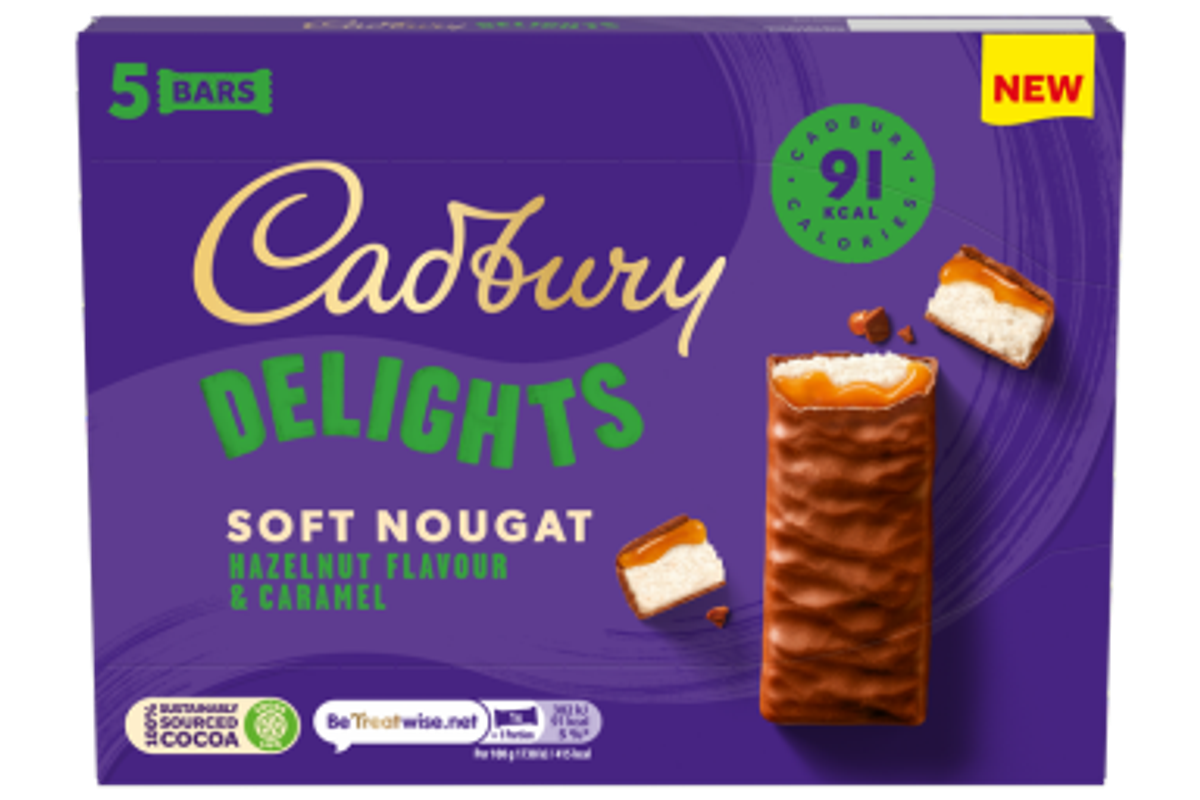Key Points
- The ASA upheld two complaints against a Cadbury radio ad for misleading calorie and comparative nutrition claims.
- The ad’s use of “only 91 calories” was ruled as an unauthorised “low energy” nutrition claim.
- Mondelez must ensure future ads comply with BCAP Code conditions when referencing nutrition information.
The Advertising Standards Authority (ASA) has on Wednesday upheld two complaints against a radio advertisement by Mondelez UK Ltd, ruling that the company breached advertising rules by making unauthorised nutrition and comparative nutrition claims.
The ad, which promoted Cadbury Delights bars, was found to mislead consumers with its “only 91 calories” statement, aired in January 2025.
The 30-second radio spot, broadcast on 18 January, described the product as: “Delights have that same chocolatey Cadbury taste you've had a million times before…. But they're only 91 calories. So, samey is exactly what we're going for. Cadbury Delights. Same Cadbury, only 91 calories.”
Two issues were investigated by the ASA following complaints, including one from a registered nutritionist. Both were upheld.
Misleading Use of “Only 91 Calories”
The first issue centred on the ad’s claim of “only 91 calories”, which the ASA determined constituted a nutrition claim under the BCAP Code. Only nutrition claims authorised on the Great Britain nutrition and health claims register (the GB NHC Register) could be made in ads promoting food or drink products.
The term “only 91 calories” was interpreted as suggesting the bar was low in energy, a claim that is only allowed if the product contains no more than 40 kcal per 100g for solids. However, Cadbury Delights bars contain over 400 kcal per 100g, with variations depending on flavour—413 or 415 kcal per 100g.
“Listeners would understand the claim ‘only 91 calories’ as a low calorie claim, which was equivalent to the ‘low energy’ nutrition claim authorised on the GB NHC Register… but the Cadbury Delights products did not meet the conditions of use for that claim, and it therefore breached the Code,” the ASA ruling noted.
Implied Comparative “Energy Reduced” Claim
The second upheld complaint related to comparative nutrition claims. The ASA found that the ad implied Cadbury Delights were a lower-calorie alternative to other Cadbury bars, especially given the repetition of the phrase “same taste” and “only 91 calories”.
The BCAP Code allows comparative “energy reduced” claims only when the calorie content is at least 30 per cent lower than other products in the same category, and where this difference is clearly stated. In this case, Cadbury Delights did not meet the 30 per cent reduction requirement compared to other Cadbury products.
According to the ASA’s ruling, “Listeners were likely understand the ad to be implying that Cadbury Delights were a comparable, reduced-calorie alternative to other Cadbury chocolate bars, particularly those that featured nougat or caramel. Because of this, we considered that the ad included an implied ‘energy reduced’ comparative nutrition claim… but the products did not meet the conditions of use for that claim,” the ruling said.
Mondelez Response
In response to the complaints, Mondelez said that the ad had been cleared by Radiocentre, the industry body responsible for vetting radio advertisements. However, Radiocentre clarified that they had initially cleared the claim “contains 91 calories” and they had not identified that the claim had changed to “only 91 calories.”
Mondelez said they did not intend to make a nutritional claim but merely to offer factual calorie content in a brand-appropriate tone. They cited consumer research that showed calorie transparency was important to shoppers. However, they agreed to amend future advertising to remove any implication of a nutritional or comparative benefit.
The ASA concluded that the ad must not appear again in its current form and directed Mondelez to ensure that any future nutrition-related claims are supported by evidence showing compliance with GB NHC Register standards.


